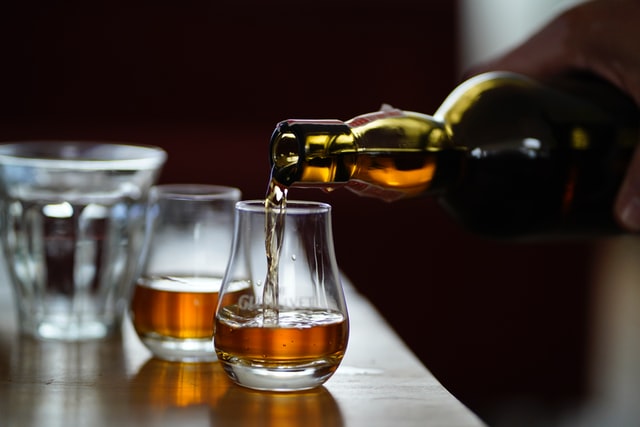7 Facts You Might Not Know About Scottish Whisky
9th Apr 2020Scotch whisky is loved the world over, and here in Scotland we’re clearly very proud of our national drink. If you’ve ever enjoyed a wee dram you’ll understand the complexities of the golden liquid. But did you know behind those flavours there’s plenty of history and stories to be told? We picked the brains of our Tour & Whisky Tasting guide Fred, to find out some fascinating facts about Scottish whisky...
1. It’s only distilled twice
Unlike Irish whisky which is distilled three times to make it lighter, Scotch whisky is distilled twice. Jokes are often made about the Scots being confident in getting the right flavour after just two distillations.
2. It’s called the water of life
The origins of the word ‘whisky’ come from the gaelic word uisge-beatha, which translates as the water of life. The pronunciation has evolved somewhat over the centuries into ‘whisky’ as we know it today.
3. James IV prefered to call it Aqua Vitae
What can you mix with gunpowder to make your canons fire farther? A little whisky, of course! Often called the world’s first famous whisky drinker, King James IV referred to the golden nectar as aqua Vitae in latin. The rough malt at 60% ABV was rightly called 'fire water' because of experiments with adding the liquid to gunpowder...
4. Scotch whisky wasn’t always matured
Originally whisky in Scotland wasn’t matured, and was more like a rough malt 60% abv. This potent drink was enjoyed greatly by the Scots, thanks to it being cheap and efficient!

5. The underground vaults hid illicit whisky stills
We know that a gang of Highlanders used the Blair Street Underground Vaults to hide an illicit still, and ran their dodgy operation down there for up to 18 months. While we know about this one, the truth is there were probably several others that were undocumented.
6. The cask gives Scotch unique flavours
Most whisky is aged in bourbon casks, but some Scotch whisky is matured in wine or sherry casks which add depth to their flavour - although this can also make them more expensive. Bourbon cask whisky tends to have a vanilla taste to it, with fresh fruit, honey, fudge and caramel flavours. On the other hand, sherry casks can give whisky spice flavours, like cardamom or cinnamon, and dried fruit like figs, dates or sultanas - essentially, Christmas flavours.

7. Whisky tasting and wine tasting share similar vocabulary
Did you know the vocabulary of whisky tasting shares a lot in common with wine tasting? Phrases like the legs, nose and palate are all used in a whisky tasting session. The only difference is, in a whisky tasting session you don’t spit what you’re tasting out!
We hope you enjoyed reading these little known facts about Scotch whisky. Perhaps one day we’ll be able to share a dram with you and tell you a couple more.

